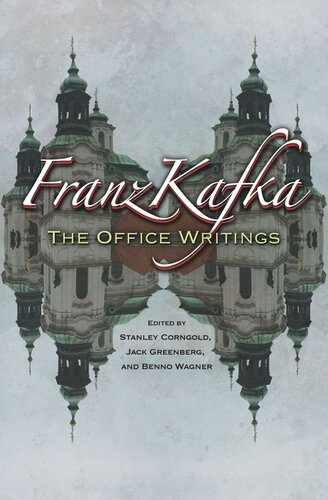

Most ebook files are in PDF format, so you can easily read them using various software such as Foxit Reader or directly on the Google Chrome browser.
Some ebook files are released by publishers in other formats such as .awz, .mobi, .epub, .fb2, etc. You may need to install specific software to read these formats on mobile/PC, such as Calibre.
Please read the tutorial at this link: https://ebookbell.com/faq
We offer FREE conversion to the popular formats you request; however, this may take some time. Therefore, right after payment, please email us, and we will try to provide the service as quickly as possible.
For some exceptional file formats or broken links (if any), please refrain from opening any disputes. Instead, email us first, and we will try to assist within a maximum of 6 hours.
EbookBell Team

4.0
66 reviewsFranz Kafka: The Office Writings brings together, for the first time in English, Kafka's most interesting professional writings, composed during his years as a high-ranking lawyer with the largest Workmen's Accident Insurance Institute in the Czech Lands of the Austro-Hungarian Empire. Franz Kafka (1883-1924) is commonly recognized as the greatest German prose writer of the twentieth century. It is less well known that he had an established legal career. Kafka's briefs reveal him to be a canny bureaucrat, sharp litigator, and innovative thinker on the social, political, and legal issues of his time. His official preoccupations inspired many of the themes and strategies of the novels and stories he wrote at night.
These documents include articles on workmen's compensation and workplace safety; appeals for the founding of a psychiatric hospital for shell-shocked veterans; and letters arguing relentlessly for a salary adequate to his merit. In adjudicating disputes, promoting legislative programs, and investigating workplace sites, Kafka's writings teem with details about the bureaucracy and technology of his day, such as spa elevators in Marienbad, the challenge of the automobile, and the perils of excavating in quarries while drunk. Beautifully translated, with valuable commentary by two of the world's leading Kafka scholars and one of America's most eminent civil rights lawyers, the documents cast rich light on the man and the writer and offer new insights to lovers of Kafka's novels and stories.